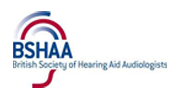

![]()











Hearing loss
The facts
One in seven people in the UK (almost 9 million people) are deaf or hard of hearing.
More than 40% of people over the age of 50 have some degree of hearing loss.
More than 70% of people over the age of 70 have some degree of hearing loss.
Conductive hearing loss
The simplest way to describe conductive hearing loss is a drop in the perception of volume and clarity. Similar to the feeling you get when you have ear-plugs in. This can be due to excessive wax, perforation to the ear drum, Otosclerosis or many forms of Ottitis Media. With this kind of hearing loss you may need to be referred to your GP On medical grounds, as there may be options available to you other than a Hearing Aid.
Sensory neural hearing loss
The simplest way to describe sensory neural hearing loss is there is sometimes a normal perception of volume but a poor perception of clarity. In a vast number of cases this can be due to the aging process (Presbyacusis). This is caused by the gradual deterioration, through wear and tear, of the delicate hair cells in the inner ear. These highly sensitive cells process sound vibrations into electrical impulses that are then sent along the auditory nerve to the brain, which recognises them as the familiar sounds we hear. Other causes can be hereditary, blood or heart problems, viral, medication or noise induced. With sensory neural loss an individual will sometimes manage to hear conversation in a quiet environment but will struggle to hear clarity of speech in an environment where there are background noises. They will also feel the need to have the TV louder. This sort of hearing loss is often best corrected with use of a hearing aid system.
Noise induced hearing loss
This type of loss is becoming increasingly more common. If you have ever worked in a noisy environment, even many years ago, or suffer from ringing in the ears, then click link to find out more about noise induced hearing loss.
Tinnitus
Is a noise in the ear described variously as buzzing, hissing, humming, roaring, ringing or whistling. The noises may be heard in one or both ears and can be low, medium or high-pitched. If the tinnitus is not associated with a medical problem(such as Meniere's Disease), binaural hearing aids have been proven to help most patients with the noise levels. Your Registered Hearing Aid Dispenser will be able to advise you. For more information on types of hearing loss, medical advances and other interesting topics. Click on sites below.

